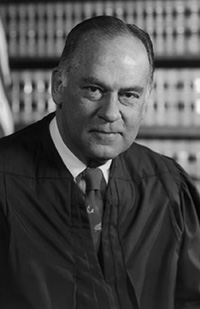 |
| Mohamed al-Sayaghi/Reuters |
The Ninth Circuit’s decision in Martin v. City of Boise is curious, to say the least. It’s a shame the Court declined to hear an appeal.
The Supreme Court recently declined to hear an appeal to the Ninth Circuit Court of Appeals’ decision in Martin v. City of Boise. The plaintiffs in Martin were six homeless residents of the city of Boise, Idaho, each of whom was cited for violating municipal statutes banning “camping” and sleeping on public property. Five of the plaintiffs were sentenced to time-served for their violation of the city ordinances. In making its decision, the Ninth Circuit weighed, in the majority’s words, “whether the Eighth Amendment’s prohibition on cruel and unusual punishment bars a city from prosecuting people criminally for sleeping outside on public property when those people have no home or other shelter to go to.”
The merits of the laws are certainly debatable. What seems clear is that no reasonable person alive at the Founding would have considered them to violate the Eighth Amendment ban on “cruel and unusual punishment.” For one thing, it’s unclear that the Framers meant for the Eighth Amendment to impose substantive limits on what states can criminalize, rather than restrictions on the types of punishments they can impose. For another, vagrancy laws were unremarkable features of most state legislatures at the time of the Founding. Maine and Massachusetts both enacted laws in the spring of 1788 that called for “suppressing and punishing . . . Rogues, Vagabonds, common Beggars, and other idle, disorderly, and lewd Persons,” and for the subsequent commitment of such persons to a “convenient house or houses of correction . . . for the keeping, correcting, and setting to work of” them.
Even if one were to ignore the historical evidence, however, the Ninth Circuit’s ruling is just as puzzling in its interpretation of relevant case law and its application of precedent, making the Court’s denial of certiorari all the more bizarre.

Some background is in order. The Martin majority argues that Boise was unconstitutionally criminalizing the “status” of the homeless plaintiffs. Its analysis relies in part on the Supreme Court’s 1962 ruling in Robinson v. California, which considered whether a California law that made it a criminal offense to “be addicted to the use of narcotics” constituted cruel and unusual punishment. Justice Potter Stewart, writing for the majority, ruled that it did. “We deal with a statute which makes the ‘status’ of narcotic addiction a criminal offense,” he wrote, a law that criminalized “an illness which may be contracted innocently or involuntarily.” Stewart recognized that “imprisonment for ninety days is not, in the abstract, a punishment which is either cruel or unusual,” but wrote that “even one day in prison would be a cruel and unusual punishment for the ‘crime’ of having a common cold.”Read the rest from John Hirschauer HERE.
If you like what you see, please "Like" us on Facebook either here or here. Please follow us on Twitter here.

No comments:
Post a Comment